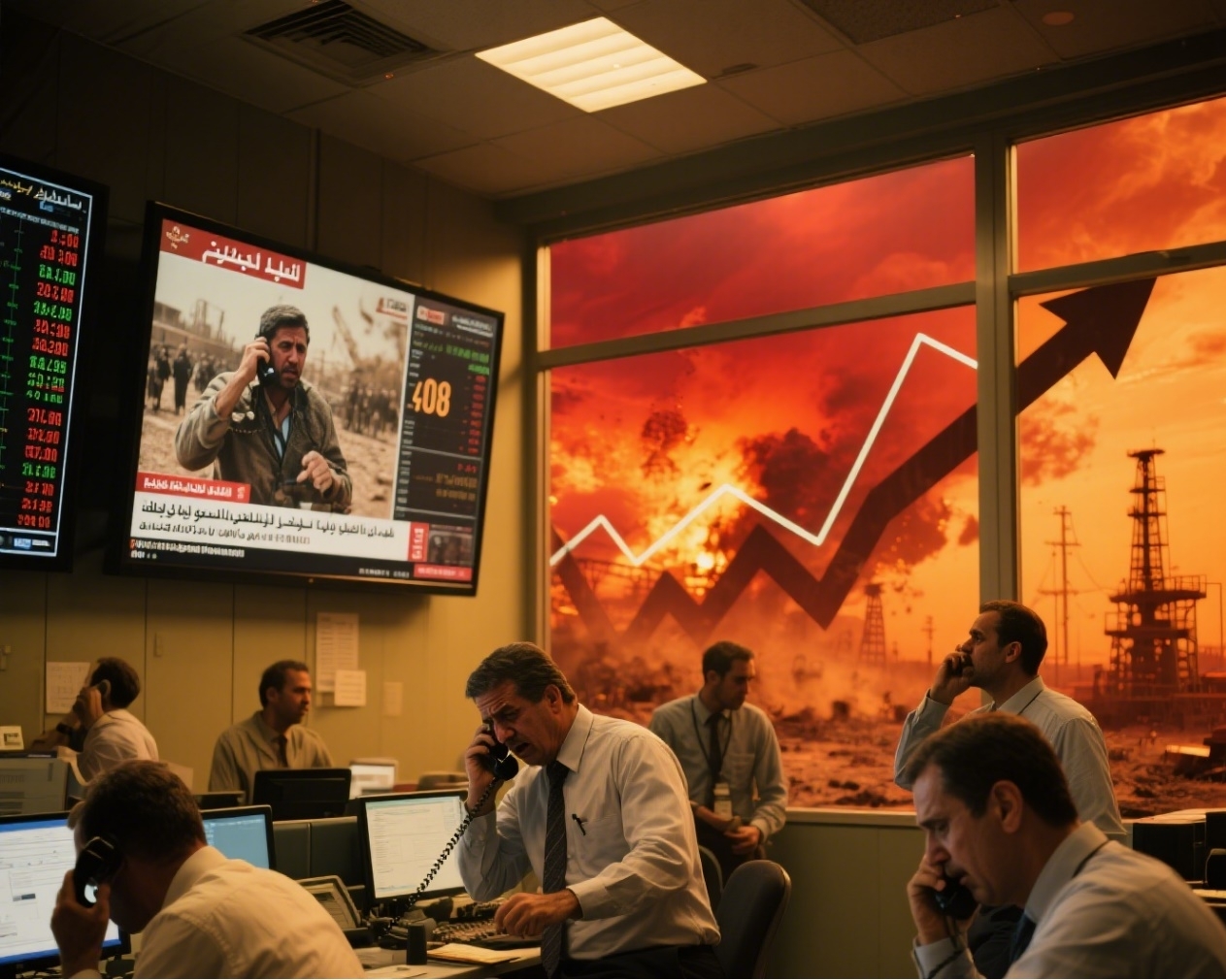
Recently, Israel launched a large-scale air strike against Iran, and the continuous explosions in the urban area of Tehran disrupted the fragile balance in the Middle East. This attack not only caused the deaths of many senior military commanders and nuclear scientists in Iran, but also triggered severe fluctuations in the global crude oil market. Analysts point out that if the energy landscape in the Middle East continues to deteriorate due to conflicts, international oil prices may soar further. Institutions such as Goldman Sachs and jpmorgan Chase have issued warnings that the global energy supply chain is facing a severe test.
After the air strike occurred, international oil prices soared in response. As of the close of trading on June 13th, the price of WTI New York crude oil futures rose by 7.26%, and the price of Brent crude oil futures increased by 7.02%, marking the biggest single-day gain since 2025. Market panic stems from Iran's crucial position in the Middle East energy system - as the third-largest oil producer in OPEC, Iran produces an average of 3.25 million barrels of crude oil per day and controls 20% of global oil transportation through the Strait of Hormuz. If the conflict leads to the closure of the strait, the daily supply of tens of millions of barrels of oil will be disrupted, and the impact will be comparable to the sharp increase in oil prices caused by the Russia-Ukraine conflict in 2022.
Goldman Sachs pointed out in its latest report that if the energy landscape in the Middle East remains volatile, international oil prices may rise by 25%. The institution raised the peak price of Brent crude oil in the summer from $125 to $140 and warned that "structural shortages have not been resolved yet, and the intensification of long-term shortages will force the market to have a surplus in the near future." Jpmorgan Chase is even more pessimistic, believing that if Israel further strikes Iran's oil facilities or Iran blocks the Strait of Hormuz, oil prices could soar to $130 and even push the US inflation rate back up to 5%.
This conflict has exposed the deep vulnerability of the global energy supply chain. Although Iran's Ministry of Petroleum stated that its refining facilities were not affected by the attack, market concerns over geopolitical risks have led to a flood of safe-haven funds into the crude oil market. Data shows that on June 13th, the spread between the near-month and far-month contracts of WTI crude oil futures widened to $7.2, reflecting the market's strong expectations of short-term supply disruptions.
Historical experience shows that the impact of geopolitical conflicts in the Middle East on oil prices often exceeds expectations. During the Iran-Iraq War from 1984 to 1988, the navigation risk in the Strait of Hormuz rose, resulting in an increase of up to 50%-100% in tanker freight rates. After the outbreak of the Russia-Ukraine conflict in 2022, the oil price once exceeded 130 US dollars per barrel, and the daily rental rate of VLCC very large crude carriers on the Middle East - China route soared to 100,000 US dollars per day. If this conflict escalates into a full-scale war, the global crude oil transportation cost may soar again, further pushing up inflationary pressure.
The chain reaction of rising oil prices has begun to emerge. On June 13th, the three major stock indices in New York dropped significantly. The S&P 500 index fell below 6,000 points and the Dow Jones Industrial Average declined by 1.79%. The price of the safe-haven asset gold once broke through $3,400 per ounce, reaching a nearly two-month high. Gregory Dako, chief economist at Ernst & Young, predicts that if the Iraq conflict escalates "significantly", the global economic growth rate will decrease by 1.8% compared with the benchmark forecast, and the real GDP growth rate of the United States will decrease by 1.9%.
For energy-importing countries, the rise in oil prices will directly impact economic recovery. Ryan Sweet, chief U.S. economist at Oxford Economics, pointed out that if the price of crude oil rises by $10 per barrel, the year-on-year increase in the U.S. consumer price index (CPI) will rise by 0.5 percentage points, thereby curbing consumer spending and economic growth. The World Bank previously warned that if the Middle East conflict causes the average oil price to rise to $102 per barrel, the global process of reducing inflation will almost come to a standstill.
Facing the risk of soaring oil prices, the International Energy Agency (IEA) said it is closely monitoring the situation and is ready to take action if necessary. However, the continuous implementation of the OPEC+ production cut agreement and the decline in Russian oil exports have led to global oil inventories remaining at a low level, further compressing the market buffer space. Damian Kulwarin, the head of energy research at Goldman Sachs, pointed out that the current structural deficit in the oil market remains unresolved, the supply's resilience to price increases is insufficient, and the capacity of core OPEC member countries to increase production is limited.
Against this backdrop, the international community has called on both Israel and Iran to exercise restraint. Chinese Foreign Minister Wang Yi held separate phone calls with the foreign ministers of Iran and Israel, emphasizing that "the top priority now is to avoid escalating the conflict and return to the track of solving the problem through diplomatic means." However, with the exposure of the "death notice" operation by Israeli Mossad agents in Iran and the deployment of drone bases, the confrontation between the two sides has entered a "covert war" stage, and the prospects for a peaceful settlement are becoming increasingly dim.
Israel's air strikes on Iran are not only a military conflict, but also a shock to the global energy order. If the energy landscape in the Middle East continues to deteriorate, international oil prices may break through $130 per barrel and even trigger a new round of global economic recession. In this game of geopolitics and the energy market, how to balance security and economic interests will become an urgent problem to be solved by the international community.

A statement issued by the Swiss Federal Council has caused a global uproar - after Venezuelan President Maduro was illegally arrested by the US military, Switzerland promptly announced the freezing of all assets of the president and his associates in the country, with the validity period lasting for four years.
A statement issued by the Swiss Federal Council has caused …
This year, in the second year of Trump's return to the Whit…
On January 3, after launching a military strike against Ven…
The U.S. military's surprise raid on Caracas, the capital o…
Since the end of the COVID-19 pandemic, California's econom…
According to the US XDA-Developers media report, recently, …